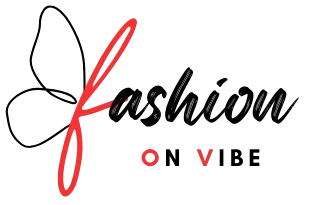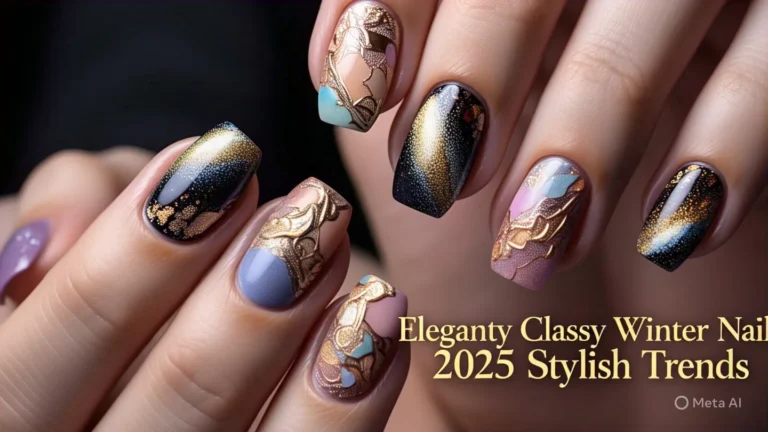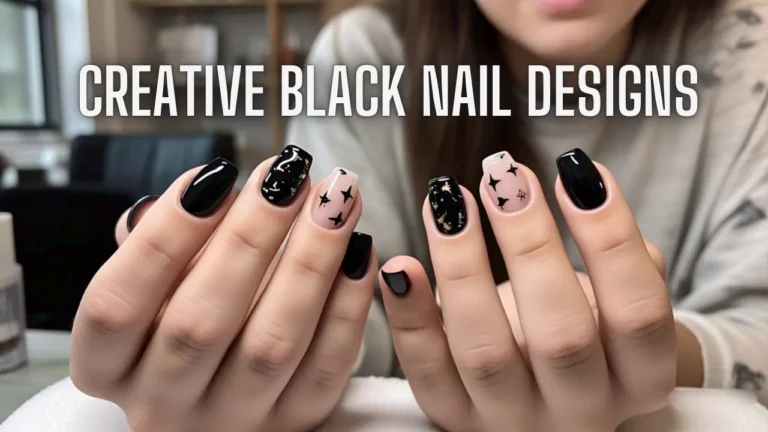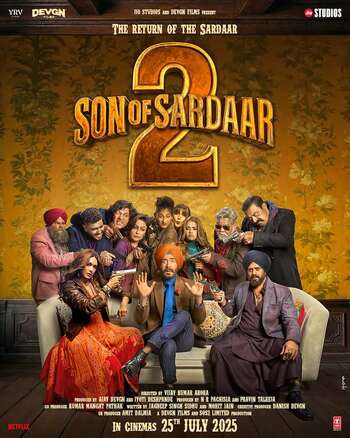Top 10 Vogue Careers inside dream Jobs in Fashion
Introduction
In the world of high fashion, few names resonate as powerfully as Vogue. A Vogue career isn’t just a job—it’s a golden ticket into a world of glamour, influence, and creative innovation. With over a century of legacy, is much more than a fashion magazine; it’s a cultural powerhouse that dictates trends, tells compelling stories, and showcases the best minds in style, design, and media.
To many, landing a career at seems like a far-off dream reserved for elite fashion school graduates or people born into industry connections. But the truth is far more inspiring. From interns to editors, many of Vogue’s professionals started with passion, persistence, and a distinct creative voice. The digital era has opened new doors at Vogue—whether through content creation, social media, or digital marketing—meaning that dream job may be more within reach than you thought.
In this article, we’ll explore every facet of Vogue careers what roles exist, the skills you need, how to get in, and real stories from people who made it happen. Whether you’re dreaming of styling cover shoots, writing cultural critiques, or leading brand campaigns, consider this your guide to turning the dream into a reality.

Top Career Paths
When most people think of , they envision fashion editors at glamorous runway shows or cover shoots styled to perfection. While these roles do exist, the opportunities go far beyond the obvious. it careers span editorial, digital, creative, and business roles, offering options for almost any skill set within the media and fashion industries.
1. Editorial & Journalism This is the heart of Vogue. Editorial teams craft fashion stories, conduct celebrity interviews, and cover topics ranging from politics to beauty. Writers, editors, and contributors are responsible for maintaining Vogue’s sophisticated and authoritative tone.
2. Fashion Styling & Creative Direction These professionals bring fashion to life on the page and screen. Stylists collaborate with designers, photographers, and models to create iconic images. Creative directors shape the visual aesthetic across platforms.
3. Art Direction & Photography Behind every stunning Vogue shoot is a team of visionary art directors and fashion photographers. These roles require a sharp eye for layout, composition, and trend forecasting.
4. Digital Content & Social Media Strategy With Vogue’s massive online presence, digital strategists and content creators play a vital role. They manage Instagram campaigns, produce Reels and TikToks, and optimize stories for SEO and traffic.
5. Event Production & PR From the Met Gala to Fashion Week, event producers manage logistics, media coverage, and celebrity coordination. These roles combine project management with creativity and an eye for luxury.
6. Brand Partnerships & Advertising As part of Conde Nast, works with high-profile brands for co-branded content, advertising campaigns, and product placements. These business-side careers involve negotiation, strategy, and strong industry relationships.
7. Data Analytics & Audience Development Yes, hires data nerds too. Analysts track user behavior, engagement, and reader demographics to guide editorial and business strategies.
8. Fashion Forecasting & Market Editing These professionals identify trends before they hit the mainstream. Market editors work closely with designers, PR teams, and retailers to curate what’s next in fashion.
The diversity of these roles proves that a Vogue career isn’t one-size-fits-all. Whether you’re a writer, a tech-savvy marketer, or a visionary creative, there’s likely a place for your talents in the Vogue universe.
Skills and Qualifications
Securing a role at isn’t just about having a love for fashion—it’s about proving you have the skills, mindset, and polish to meet the magazine’s high editorial and aesthetic standards. While job titles and departments may differ, a few common skills are universally valued across all Vogue careers. This section breaks down both the hard and soft skills you need to stand out, plus the kinds of qualifications that can elevate your candidacy.
1. Editorial Excellence and Storytelling Skills
Whether you’re applying for a writing role or a digital strategy position, storytelling is at the core of everything Vogue does. You need to demonstrate an ability to write with clarity, creativity, and authority. This means:
- A deep understanding of Vogue’s tone and audience.
- Excellent grammar, structure, and editing ability.
- A flair for storytelling that feels both personal and culturally relevant.
If you’re an aspiring editor or writer, a portfolio with published articles on fashion, beauty, or culture is crucial. Internships at other magazines or freelance writing gigs can help you build this foundation.
2. Visual and Aesthetic Sensibility
Vogue is a visual-first brand. Even if you aren’t applying for a photography or styling position, an eye for aesthetics is key. This includes:
- Understanding fashion trends, color theory, and visual storytelling.
- The ability to moodboard or pitch creative ideas with strong visual references.
- Knowledge of design tools like Adobe InDesign, Photoshop, or Canva (for some digital and creative roles).
If you’re in creative direction, art direction, or styling, your portfolio should reflect a refined sense of style, versatility, and originality.
3. Digital Fluency and Social Media Expertise
In today’s media landscape, Vogue lives as much online as in print. Digital fluency is essential across departments—especially for roles in content, marketing, or brand partnerships. Vogue looks for candidates who:
- Understand SEO and digital storytelling formats.
- Know how to drive engagement on platforms like Instagram, TikTok, and YouTube.
- Can work with CMS systems and basic HTML (especially for editorial or digital marketing roles).
Understanding trends in digital publishing is a huge plus—knowing what makes a headline clickable or how to craft content that resonates in real time.
4. Networking and Communication Skills
Vogue is a relationship-driven brand. Whether you’re working with designers, publicists, or editorial teams, communication is critical. Soft skills like:
- Strong interpersonal skills.
- The ability to pitch ideas clearly and concisely.
- Confidence in professional networking settings (events, email, press calls).
Candidates who can demonstrate tact, diplomacy, and professionalism in high-pressure or luxury environments tend to stand out.
5. Educational Background and Industry Training
While there is no “perfect” degree to land a job at Vogue, certain backgrounds are more common:
- Bachelor’s degrees in journalism, communications, media, or fashion.
- Specialized training in fashion marketing, editorial production, photography, or graphic design.
- Certificates or programs from institutions like Parsons, FIT, Central Saint Martins, or Columbia School of Journalism.
However, Vogue doesn’t hire solely based on credentials—it’s your body of work and creative potential that matters most. Many Vogue alumni built their careers by starting small and growing their skills on the job.
6. Experience, Internships, and Work Samples
Experience counts. Vogue often hires candidates with prior internships, freelance work, or relevant roles at other media brands. Make sure your résumé shows:
- Real contributions to campaigns, stories, or projects.
- Measurable achievements like page views, social growth, or campaign ROI.
- Work samples that demonstrate your taste level and professional polish.
If you’re applying for an entry-level role, a standout internship at a reputable fashion house, PR agency, or media company can go a long way.
How to Land a Job
Landing a job at Vogue may seem intimidating, but with the right strategy, preparation, and persistence, it’s an achievable goal. Whether you’re a recent graduate or pivoting from another career, getting your foot in the door at one of the most iconic fashion publications in the world is all about positioning yourself, showcasing your value, and knowing where and how to apply. In this section, we break down a practical, step-by-step guide on how to get hired at Vogue, based on real industry practices.
Build a Vogue-Ready Portfolio
Before you apply, you need proof of your talent. Your portfolio is the first thing that will speak for you—whether you’re applying for editorial, design, styling, or digital roles.
For writers and editors:
- Submit a collection of published articles that show a range of tones, topics, and formats.
- Focus on fashion, culture, beauty, or lifestyle to match Vogue’s niche.
- Prioritize pieces with strong headlines, SEO structure, and visual appeal.
For stylists, creatives, or designers:
- Include original shoots, moodboards, or campaigns.
- Make sure the layout is sleek, modern, and easy to browse.
- Quality matters more than quantity—only showcase your best work.
For digital/social media roles:
- Share analytics from past campaigns, growth metrics, or content samples.
- Highlight innovation and how your work drove engagement or conversions.
Understand the Vogue Brand
One of the biggest mistakes applicants make is treating Vogue like just another job application. Hiring managers want people who understand the tone, values, and history of the brand.
Study the magazine and its platforms:
- Read the latest print and digital issues.
- Follow Vogue on Instagram, TikTok, YouTube, and other social platforms.
- Pay attention to language, visuals, diversity in content, and audience interaction.
Do your homework on key editors and leaders:
- Know who the Editor-in-Chief is.
- Understand how different Vogue regional editions (US, UK, Italia, etc.) vary in style.
Tailor your résumé, cover letter, and even your tone to reflect your understanding of what Vogue represents: elevated fashion, global awareness, and sharp cultural insight.
Network the Right Way
Vogue, like much of the fashion industry, is heavily influenced by relationships. Knowing someone on the inside, or simply being visible to key players, can significantly increase your chances.
Start by networking on platforms like LinkedIn and Instagram:
- Follow and engage (genuinely) with editors, stylists, digital leads, and Vogue contributors.
- Attend fashion networking events, panels, or journalism talks—especially those hosted by Condé Nast.
- Build a presence in online fashion communities where professionals share job tips or opportunities.
Reach out professionally:
- A cold email with a thoughtful message and a link to your portfolio can make an impression.
- Keep it short, respectful, and enthusiastic. Avoid coming across as overly familiar or pushy.
Apply Through the Right Channels
Most Vogue jobs are posted through Condé Nast Careers, the official portal for all company-owned media brands. Here’s how to approach it:
Visit: careers.condenast.com
Search for roles under “Vogue” or filter by department (e.g., editorial, digital, marketing).
Tips when applying:
- Customize your résumé and cover letter to each role.
- Mention specific Vogue content that inspires you or aligns with the role.
- Keep your documents visually appealing but not overly designed—let your content shine.
For internship programs, watch for application windows in early spring or late fall. Condé Nast’s summer internships are highly competitive, but they can often lead to full-time roles.
Prepare for the Interview
If you land an interview, congratulations! Now it’s time to show you’re not just stylish—you’re smart, strategic, and ready to contribute.
Expect to answer:
- What do you love about Vogue?
- How would you improve [specific section] of the website or magazine?
- Tell us about a time you worked under pressure or on a creative deadline.
Key tips:
- Dress professionally but fashionably—make it Vogue-appropriate.
- Know your portfolio inside-out.
- Come prepared with questions about their content direction, values, or new initiatives.
Follow up with a thank-you email that reiterates your excitement and includes a link to your portfolio or website.
Keep Evolving
Even if you don’t get hired right away, don’t give up. Many Vogue professionals applied multiple times, started as interns, or freelanced before landing a full-time role.
Keep refining your skills:
- Stay current with fashion, culture, and digital media trends.
- Take courses or certifications in areas like SEO, photography, or branding.
- Keep creating and updating your portfolio regularly.
The fashion world respects persistence, style, and innovation—the same values that define Vogue itself.
Real Stories
One of the most inspiring ways to understand a Vogue career is through the personal journeys of those who have made it. Behind the glossy pages and stunning photos are hardworking individuals with unique paths—each shaped by passion, resilience, and creativity. In this section, we share real success stories from Vogue professionals, illustrating that no single route defines the Vogue dream. These stories are not only motivational but also offer practical lessons for anyone aiming to join this iconic brand.
Emma’s Story
Emma started her career as a summer intern at Vogue’s editorial office while studying journalism in college. Like many interns, she faced long hours, menial tasks, and the challenge of proving herself in a competitive environment. But Emma made every moment count: she took on extra assignments, pitched original story ideas, and networked extensively within the company.
Her dedication paid off when she was offered a junior editorial assistant position. Over the next few years, Emma refined her writing, developed relationships with industry insiders, and learned to balance Vogue’s sophisticated tone with fresh, contemporary perspectives. Today, Emma is a Senior Editor, shaping major fashion spreads and guiding new writers.
Key takeaway: Start humble, work hard, and never underestimate the power of networking and fresh ideas.
Marcus’ Journey
Marcus had a passion for fashion styling but no formal background in media. He started by assisting local photographers and building a portfolio of creative photo shoots. When he moved to New York, he freelanced for smaller fashion blogs and gradually got noticed by Vogue’s styling team through Instagram.
His big break came when he styled a celebrity photoshoot that Vogue featured online. Recognizing his fresh eye for detail and trendsetting looks, Vogue hired Marcus as a freelance stylist, eventually offering him a full-time position.
Key takeaway: Build your portfolio, embrace freelance opportunities, and use social media as a tool for visibility.
Priya’s Experience
Priya studied marketing and had experience working at a tech startup before applying to Vogue’s digital team. She understood the importance of SEO, audience engagement, and platform analytics. Priya’s innovative campaign to increase Vogue’s Instagram engagement through interactive Reels and stories caught the attention of Vogue’s leadership.
By combining data-driven strategies with creative content, Priya helped Vogue grow a younger audience while maintaining brand sophistication. Now, she leads Vogue’s digital marketing efforts and mentors new team members.
Key takeaway: Marry creativity with analytics, and never stop learning about evolving digital tools.
Carlos’ Path
Carlos started writing fashion commentary for his personal blog. He built a small but loyal readership by offering insightful, original perspectives on global fashion trends. Carlos pitched several ideas to Vogue, and after persistent follow-up, his first article was accepted for publication.
Carlos continued freelancing, contributing to Vogue’s online and print editions, eventually becoming a regular contributor. His voice is valued for its authenticity and cultural relevance.
Key takeaway: Be persistent in pitching, build a unique voice, and deliver consistently high-quality content.
Lessons Learned
Across these stories, a few key lessons stand out for anyone aspiring to join Vogue:
- Persistence is everything: Almost everyone started with entry-level roles or freelance gigs.
- Network with purpose: Genuine relationships open doors.
- Adapt and evolve: Vogue values innovation, especially in digital media.
- Understand the brand deeply: Vogue is about more than fashion—it’s culture, art, and storytelling.
- Bring your unique voice: Diversity in experience and perspective enriches the magazine.
These stories prove that while Vogue careers are competitive, they are also accessible with the right mindset, skill set, and dedication. Whether you want to be behind the camera, writing the next big article, or crafting the perfect social media campaign, your Vogue career can start today.
Essential Skills and Qualifications
Building a successful career at Vogue requires more than just passion for fashion; it demands a mix of specialized skills, education, and the ability to adapt in a fast-paced, trend-driven environment. Whether you’re aiming to be an editor, stylist, digital marketer, or photographer, understanding the core skills and qualifications Vogue looks for will give you a competitive edge and set you up for long-term success.
Education and Experience
While there is no single educational path to Vogue, many professionals hold degrees in fields like journalism, communications, fashion design, marketing, or photography. These formal studies provide foundational knowledge — from writing skills to visual aesthetics — essential for crafting Vogue’s high-standard content.
However, Vogue also highly values real-world experience. Internships, freelance work, and entry-level jobs within fashion or media outlets are crucial. These roles give hands-on training, industry connections, and a portfolio that proves your capabilities.
For example, many editorial candidates start with a degree in journalism or English but complement that with internships at fashion magazines or online publications. Stylists and photographers often begin by building diverse portfolios through freelance projects and assisting established professionals.
Key Skills for Editorial
1. Exceptional Writing and Storytelling:
Editors, writers, and contributors at Vogue must craft compelling, polished content that reflects the brand’s authoritative yet fresh tone. This involves not just flawless grammar but storytelling skills that engage and inspire readers.
2. Trend Awareness and Cultural Insight:
A deep understanding of current and emerging fashion trends, cultural shifts, and global events is essential. Vogue professionals often work ahead of the curve, spotting trends before they become mainstream.
3. Visual Literacy and Aesthetic Sense:
For roles in styling, photography, and art direction, a refined eye for detail, composition, and color is vital. This helps create the stunning visuals Vogue is famous for.
4. Creativity and Innovation:
Vogue thrives on originality. Whether proposing a new article angle or designing a cutting-edge photoshoot, creative thinking sets candidates apart.
Digital and Business Skills
In today’s digital-first world, Vogue also seeks professionals who can combine creativity with data-driven strategies.
1. Digital Marketing and SEO:
Understanding how to boost content visibility through search engines, social media algorithms, and digital campaigns is crucial. Digital marketers at Vogue use analytics tools to optimize engagement and grow audiences.
2. Social Media Expertise:
Managing platforms like Instagram, TikTok, and Pinterest requires not just posting content but mastering trends, community interaction, and influencer partnerships.
3. Project Management:
From organizing fashion events to coordinating photo shoots, strong organizational skills and the ability to manage multiple moving parts are key.
4. Negotiation and Relationship Building:
Roles in brand partnerships and advertising demand excellent communication and negotiation skills to foster long-term collaborations with luxury brands.
Soft Skills
Beyond technical skills, Vogue values certain personal qualities:
- Adaptability: The fashion industry is fast-moving and ever-changing. Being flexible and open to learning new tools and trends is essential.
- Collaboration: Vogue is a team environment. The ability to work well with diverse creative and business teams ensures projects run smoothly.
- Passion and Commitment: Genuine enthusiasm for fashion and media fuels the long hours and dedication needed to succeed.
- Attention to Detail: Vogue’s reputation relies on impeccable quality. Careful attention to every aspect of your work matters.
- Resilience: Facing rejection, tight deadlines, and high expectations requires mental toughness and perseverance.
How to Build Worthy Skill Set
- Intern and Volunteer: Gain experience through internships and freelance work to develop practical skills and industry contacts.
- Take Specialized Courses: Online classes in fashion journalism, digital marketing, photography, or styling can boost your qualifications.
- Stay Informed: Regularly read Vogue and other top fashion publications to understand their voice and evolving trends.
- Network Actively: Attend fashion events, join professional groups, and connect with industry insiders on platforms like LinkedIn and Instagram.
- Create a Portfolio: Build a professional portfolio showcasing your writing, styling, photography, or marketing projects. Make it easily accessible online.
Final Thoughts
Thriving at Vogue means more than just having the right diploma or skills—it’s about blending creativity, strategic thinking, and a deep understanding of fashion culture. The combination of formal education, real-world experience, and soft skills will position you as a standout candidate ready to contribute meaningfully to one of the world’s most iconic fashion brands.
With dedication and the right preparation, your Vogue career can become more than a dream—it can be your reality.
How to Apply and Prepare?
Landing a job at Vogue is highly competitive, but with the right approach and preparation, you can significantly increase your chances of success. This section will guide you through the application process, share tips on how to stand out, and prepare effectively for interviews and assessments in the world of Vogue careers.
Research and Target the Right Role
Before applying, it’s crucial to understand the wide variety of career paths Vogue offers. Carefully review Vogue’s official career page, job boards, and LinkedIn listings to identify roles that match your skills and passions. Whether it’s editorial, digital marketing, styling, or business development, tailoring your application to the specific job description will show that you’ve done your homework and truly fit the role.
Make a list of the key qualifications and responsibilities listed in the job post, then prepare your resume and cover letter to highlight relevant experience and skills. Use keywords from the posting to optimize your application for applicant tracking systems (ATS), ensuring your materials aren’t filtered out early.
Craft a Standout Resume
Your resume and cover letter are your first impression. Keep your resume clear, concise, and visually appealing. For creative roles, consider adding a portfolio link directly in your resume.
In your cover letter:
- Start with a strong opening that grabs attention and expresses genuine enthusiasm for Vogue.
- Clearly explain why you are uniquely qualified for the role.
- Reference Vogue’s values and mission, showing alignment with their brand and culture.
- Highlight specific achievements and projects that demonstrate your skills.
- Keep the tone professional but warm and authentic — Vogue values personality and passion.
Build and Showcase Your Portfolio
For most creative and editorial roles, a portfolio is essential. It’s your chance to show, not just tell, your skills.
- Writers should include published articles, blogs, or essays demonstrating a range of styles.
- Stylists can show photos of past shoots, mood boards, or client work.
- Photographers need a selection of diverse, high-quality images that capture fashion’s spirit.
- Digital marketers should highlight campaigns, analytics results, and content strategies.
Make sure your portfolio is easy to navigate and mobile-friendly, as recruiters often view it on different devices.
Network Smartly
Networking remains one of the most powerful tools for breaking into Vogue. Attend fashion events, workshops, and panel talks where Vogue professionals might be present. Join fashion and media groups on social platforms and engage meaningfully by commenting on posts and sharing your work.
If you can, find a mentor or insider who can provide advice, referrals, or even introductions to hiring managers. Platforms like LinkedIn and Instagram can be great for making these connections, but always approach with professionalism and respect.
Prepare for Interviews
Vogue interviews often assess not only your skills but also your cultural fit and passion for fashion. Prepare by:
- Researching Vogue’s history, recent projects, and editorial style.
- Being ready to discuss your portfolio or past work in detail.
- Practicing answers to common questions like:
Why do you want to work at Vogue?
Tell us about a time you handled a challenging project.
How do you stay ahead of fashion trends? - Showing enthusiasm and confidence without arrogance.
- Asking insightful questions about Vogue’s future direction and team dynamics.
Some roles may require additional tests, such as writing assignments, photo editing, or marketing strategy proposals. Treat these seriously, as they reflect your practical abilities.
Follow Up Professionally
After interviews, send a polite thank-you email to express gratitude for the opportunity and reiterate your interest. This small gesture can help you stand out and leave a positive lasting impression.
Continuous Learning
Finally, remember that Vogue careers rarely happen overnight. Keep honing your skills, building your portfolio, and staying connected to the fashion world. If you don’t land a job immediately, consider internships, freelance gigs, or related roles to build experience and get closer to your goal.
Closing Thought
Preparing to work at Vogue is a journey of passion, perseverance, and continuous growth. By understanding the application process, building a strong personal brand, and showcasing your unique talents, you can turn your dream of a Vogue career into a rewarding reality.
FAQs
How can I get a job at Vogue magazine?
Start by building an online portfolio, applying via the Conde Nast Careers portal, and networking within the fashion industry.
Do I need a fashion degree to work at Vogue?
Not necessarily. Skills in writing, marketing, photography, or content creation can be just as valuable.
What are the top careers at Vogue?
Editorial assistant, fashion stylist, digital editor, social media strategist, creative producer, and brand partnerships coordinator.
How much do Vogue employees earn?
Entry-level roles can range from $40,000–$60,000/year, while senior positions like fashion editors or creative directors can earn six figures.
Where is Vogue headquartered?
Vogue is headquartered in New York City, with editions in countries like the UK, France, India, and Japan.
Conclusion
A career at Vogue is more than just a job — it’s a chance to be part of a fashion legacy that influences culture worldwide. Whether you dream of writing groundbreaking stories, styling iconic photoshoots, or leading innovative digital campaigns, Vogue offers a unique platform to shine.
Remember, success in Vogue careers comes from passion, persistence, and continuous learning. By preparing thoroughly, networking smartly, and showcasing your authentic creative voice, you can stand out in this competitive industry. The path may be challenging, but the rewards — creativity, influence, and a front-row seat to fashion’s future — are well worth the effort.
So, take that first step today. Your Vogue career journey starts now.







